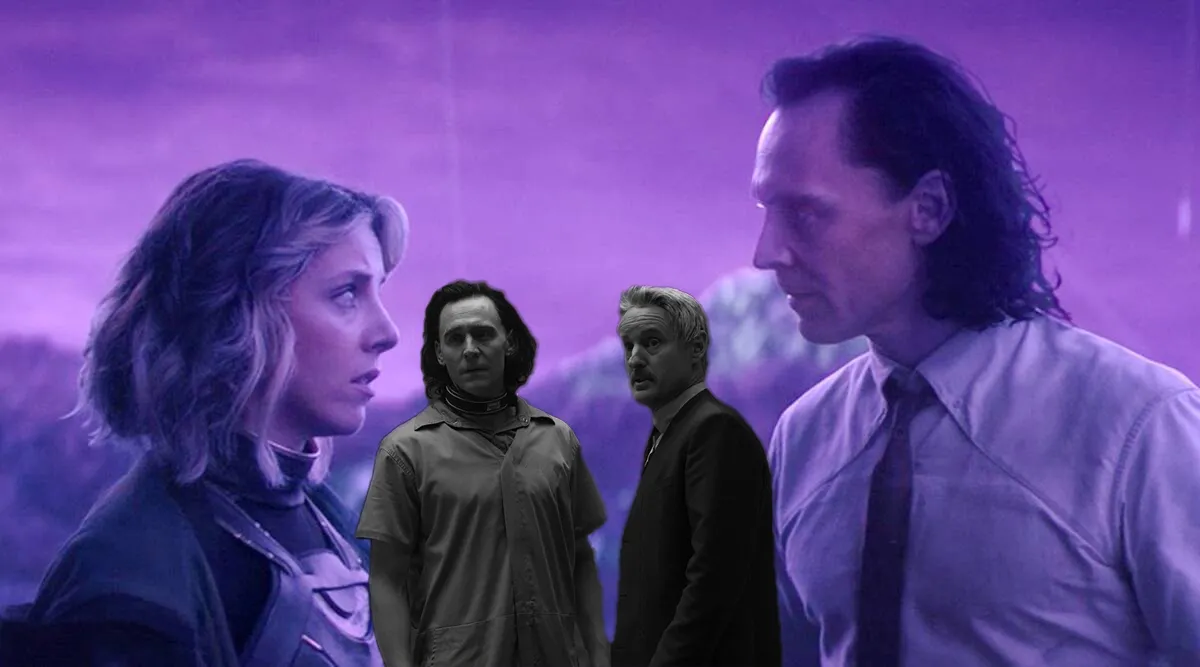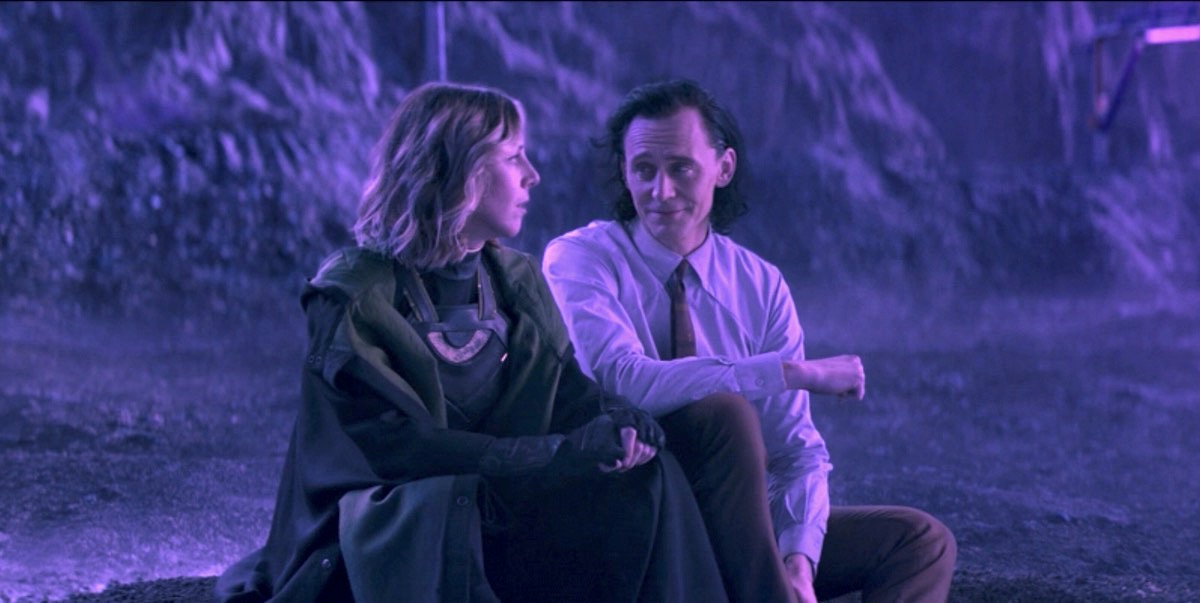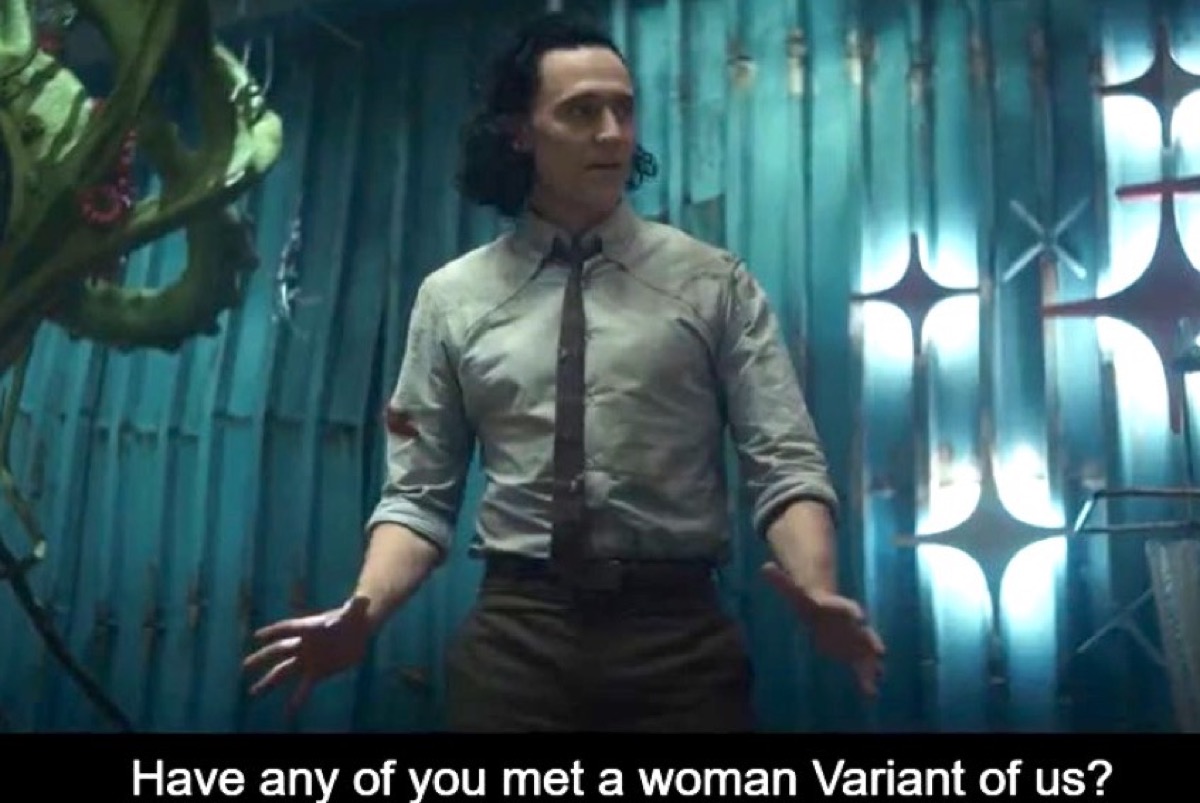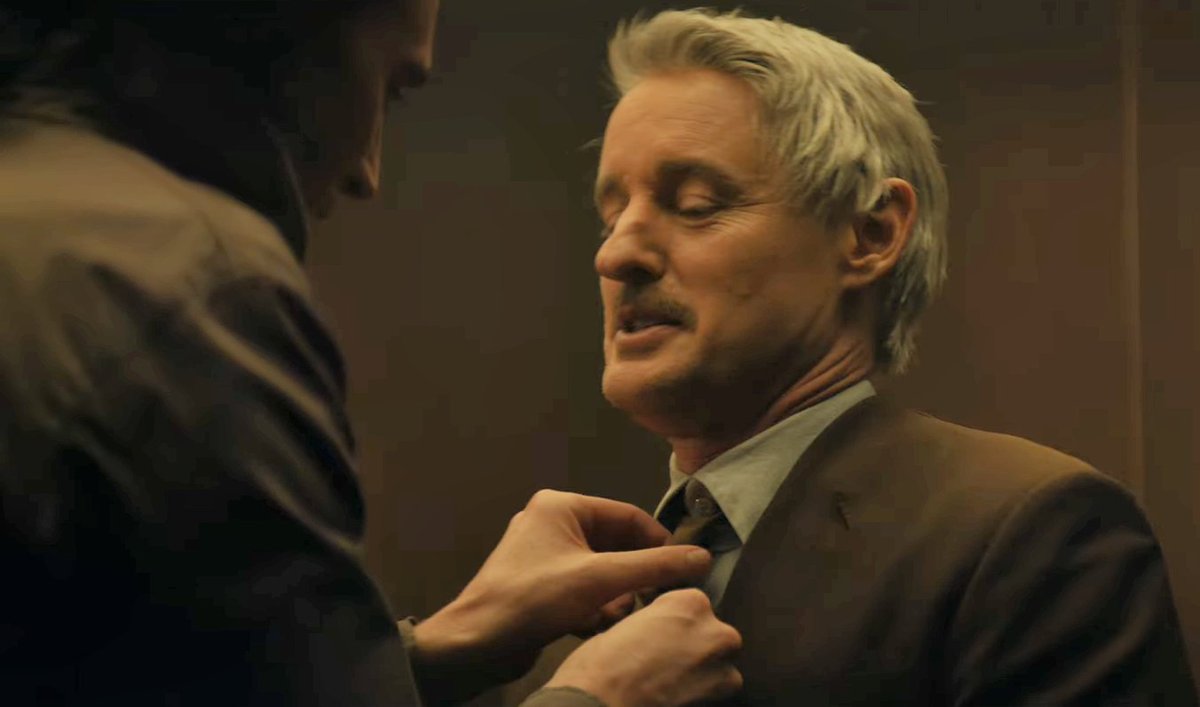I Wish the Loki Fandom Would Move Beyond Its Messy Ship War
There's so much to appreciate about this show no matter your OTP.


Marvel’s Loki Disney+ series may have ended weeks ago, but it was clearly the show of the summer, and buzz about its six-episode first season and its upcoming second season still abounds on social media.
The show’s finale spawned plenty of discussion about the opening up of the multiverse and its implications for future Marvel Cinematic Universe projects, but what has largely lingered on in the season’s aftermath is a shipping war on social media that has been going on for months and has quickly grown to become one of the ugliest in Marvel fandom history.
Apart from a few brief, sparse shots of Loki and Sylvie holding hands on Lamentis in episode 3, there was virtually no focus on romance in the show’s marketing or its first few episodes, opening the door for fans to hope the God of Mischief might get together with his new handler at the Time Variance Authority, Mobius. The pair spent the first two episodes bantering, manipulating, and having deep conversations with each other, and their developing relationship being central to those installments made them extremely shippable.
This was why, when episode 3 rolled around and shook things up by providing Loki with a canon love interest in Sylvie, many fans were thrown off. A lot of people weren’t expecting any official love interests in the series and were happy to simply headcanon a romance between Loki and Mobius, but now here was Sylvie, front and center and very hard to headcanon around.
Loki and Sylvie struggled with how to handle their feelings for each other throughout the remaining episodes, and it all culminated in a passionate kiss in the finale … followed immediately by Sylvie sending Loki away to the TVA so she could complete her mission of killing the man who stole her life from her, He Who Remains.
Loki’s relationships with Mobius and Sylvie were the two biggest of the series, and it’s easy to see why both have generated such passionate shippers. With Mobius, many fans loved how Loki finally had someone who was able to understand his complex mindset without judgment (and how, later on, Loki was able to help Mobius realize his life at the TVA was a lie), and it would have been huge to see Loki in a same-sex relationship or with a same-sex love interest onscreen. And Loki’s feelings for Sylvie functioned as a metaphor of sorts for him learning to love himself, or at least appreciate qualities he previously loathed in himself in someone else, which felt important in a show ostensibly about him as a character.
However, it’s just as easy to see why both ships have their detractors. There are many scenes in which the developing bond between Mobius and Loki has more of a father/son vibe than a romantic one, and in the early episodes, there’s also the uneven power dynamic to contend with. And with Sylvie and Loki, well … they’re variants of the same being, which didn’t sit right with some people (the term “selfcest,” a concept long in fandom, has become popularized over the past several weeks). Some also feel strange when it comes to the emotional side of this ship; would Loki and Sylvie getting together just be an example of giving in to narcissism, and proof that Lokis are only truly able to love themselves?

While both of these relationships are at the core of the show and it’s easy to see why people feel so passionate about them, it makes me sad that so much of the “fandom experience” of the Loki series has turned into a ship war, with fans so divided that almost every conversation inevitably turns back to the discussion of the merits of these two relationships in a romantic context … and the various attempts from supporters of each couple to tear down their rival shippers.
Of course, shipping is a big part of many fandoms, but for a show like Loki that has so many interesting themes and explorations at play, it seems like a waste for people to focus this strongly on who everyone wants to see the main character kiss, and allow it to make or break the show for them.
But the existence of shipping wars on the internet is one thing; they’ve been around as long as the internet (and before that, too). Roping the show’s creative team into them is another, and sadly, this is exactly what’s been happening with Loki.
Many of the creators of the show—particularly director Kate Herron and writer/producer Eric Martin—have been quite active on social media and engaging with fan questions and creations throughout the first season’s run and beyond. But of course, a number of fans are interpreting their willingness to engage as an open invitation for slander and vitriol, most of which has been about, you guessed it, the ships.
Hardcore shippers have been begging the creators to “validate” their preferred couples, and some of them have taken even a simple “like” of a tweet as confirmation their desires will come to fruition. Then, when Loki and Mobius didn’t kiss, or Sylvie ended up betraying Loki, they took it as a personal offense and proceeded to bombard them with even more demanding tweets.
Some fans aren’t even looking for validation; they just want to make their grievances with the series known in the most aggressive way possible. People have been hurling disgusting insults at the Loki team for making a “selfcestual” relationship canon, or supposedly queerbaiting them by not making Loki and Mobius a canon couple. While some fans interpreted the dynamic between Loki and Mobius to have some romantic or sexual tension, series writer Michael Waldron flat-out said pre-season that their relationship would not be going in that direction, and there was no intentional hinting or leading on of fans to believe it would be in the show itself.
Intent is key when it comes to queerbaiting, because something isn’t “bait” unless it’s deliberately meant to make people think something is coming that the baiter knows never actually is. Loki and Mobius were never intended to be viewed as a couple. Usually, when series do queerbait, they make a big deal out of a character’s possible non-straight sexuality in the marketing for the show and constantly reference the idea of it on the show itself or in interviews, but all Loki did in terms of this was briefly address his sexuality in the show’s third episode with no real build-up or fanfare.
There was some level of baiting involved with Loki, but it had nothing to do with its title character’s dating life. A piece of marketing and the creative team’s comments on it indicated that Loki’s genderfluidity (something that has been part of his character since the original Norse myths, and present in the comics) would be explored during the series, but then the show … didn’t actually do that, even upsetting viewers in making Sylvie being a woman variant seem like an anomaly.

They sure did make a big deal about supposedly wanting to include that representation, though, as it was discussed in interviews before the show even began airing. Compare this to the relatively modest official press about the confirmation that Loki and Sylvie were bisexual, which was never teased or even addressed during press before that moment on the show aired.
This could very well be a case of people conflating gender and sexuality—which are NOT the same thing by any means—and feeling that the baiting when it came to genderfluidity was evidence that the creators were also doing so on the basis of sexuality when that wasn’t the case; they were two separate elements of the show, which is important to remember when calling the creators out on the matter so it is clear exactly what the problem was. The accusations of Loki/Mobius not getting together being queerbait are actually harmful as they are drowning out those speaking up about their concerns about genderfluid representation and director Kate Herron’s subsequent reaction to that criticism, and causing people—possibly even the creators—to view all of the debate online with the same “brush it off” attitude.
However, that’s not to say that Loki’s bisexuality was perfectly handled, either. Disney has become notorious for including queer representation in their projects that can be cut in markets that don’t allow it, and Loki was yet another example of this (though, thankfully, the God of Mischief was never touted as the latest “first gay Disney character”—though much subsequent press pointed out that he was the cinematic-and-Disney+ MCU’s first acknowledged queer character). It was nice to finally get confirmation of what has long been true for the character in the comics, but the fact that it was never brought up again after that one line was disappointing, even though it’s possible—even likely—that the creative team needed to fight to allow it to be included at all.
Some “Sylki” (Loki/Sylvie) shippers have cited bi erasure when other Loki fans have expressed a desire to see him in a relationship with a man. While many bisexual people do face backlash and erasure for dating someone of the opposite sex and it’s definitely an issue, the disappointment in Loki’s love interest being a woman seems to mostly stem from Disney and Marvel Studios having very few examples of queer characters, let alone same-sex relationships.

A lot of people are, quite frankly, tired of waiting for major same-sex relationships to become canon and be depicted onscreen. A lot of fans saw Loki/Mobius as a potential way to explore Loki’s attraction to men, and it goes without saying that the inclusion of a same-sex relationship in Loki would be a big deal for those eager for that level of representation in a Marvel project. (Let’s be honest, it is beyond time for it.)
Even though it definitely wouldn’t have been the only way to incorporate that kind of inclusion, pairing those two up probably would have been the most natural way to give Loki a male love interest. There’s no doubt how meaningful a relationship like this would have been, and wanting to see something like that play out in MCU canon is completely valid, unlike the cries that the reason Loki/Sylvie shouldn’t happen is “selfcest,” which, while definitely a “your mileage may vary” topic … isn’t a real thing.
Shipping has been going on since the dawn of fandom, well before the internet even existed, but thanks to the advent of social media, fans now feel closer to the creators of their favorite stories, and this has led to a sense of ownership over the work itself. It’s okay to feel uncomfortable about romance between Loki and Sylvie, even if the scenario isn’t a thing in the real world (I’m not even sure how I feel about the Loki/Sylvie dynamic myself), but at the end of the day, it isn’t something that’s a moral concern with any basis in reality and isn’t something worth trying to “cancel” the creators of a fictional project for. Wanting queer representation is a much more valid concern, but with it being so unclear as to how far Disney would allow the creators to go on the matter, that hate probably shouldn’t be sent to the Loki creative team, either.
It’s important to note that it isn’t all fans of the show who have been doing this, or even the majority of them. But the ones who are doing so can contribute to a negative view of the Loki fanbase as a whole. How many times have we seen fans of a property drive actors and creatives off social media due to their toxicity? Far too many, and it would be sad to lose the warm and fun presence of such a passionate team like Loki’s because of people who are only able to view such a rich and complex show through their shipper goggles—especially when there’s no reason we can’t have both relationships if Disney would ever let such a thing happen.
(images: Marvel Entertainment)
Want more stories like this? Become a subscriber and support the site!
—The Mary Sue has a strict comment policy that forbids, but is not limited to, personal insults toward anyone, hate speech, and trolling.—
Have a tip we should know? [email protected]
